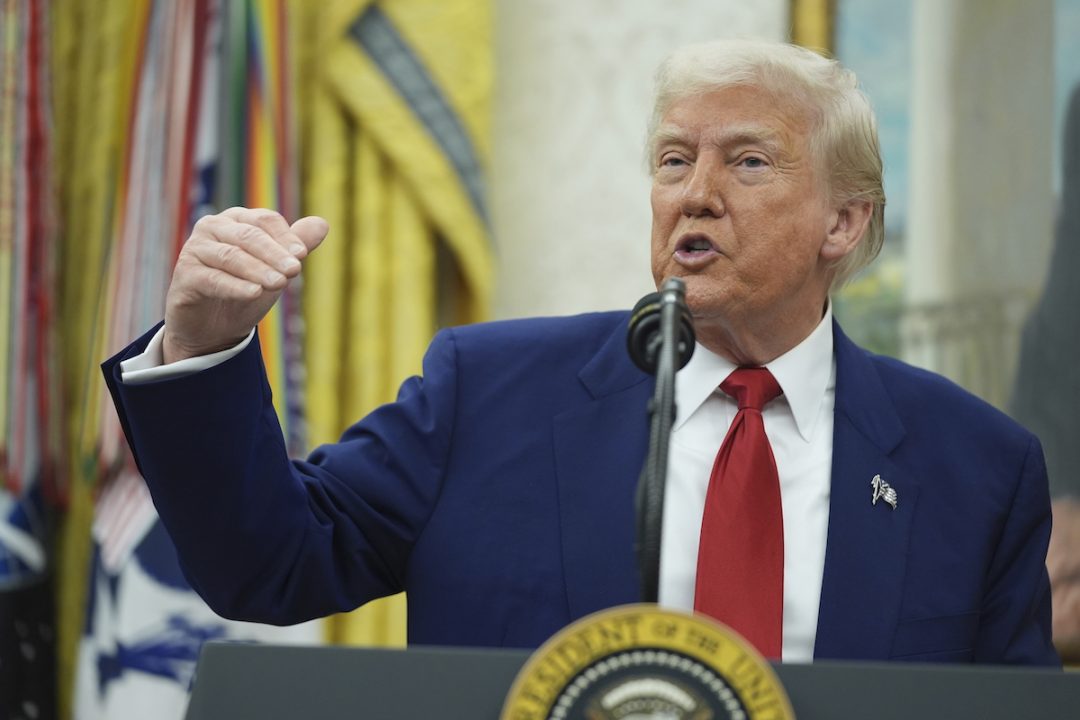
In a moment of rare clarity and courage, a federal judicial panel has struck a blow for constitutional fidelity and the rule of law by ruling that President Donald Trump exceeded his lawful authority in imposing steep tariffs on a host of foreign countries. The decision, handed down by the U.S. Court of International Trade, is more than just a slap on the wrist for one president’s economic adventurism — it is a desperately needed reminder that no man, no matter how popular or powerful, is above the law.
Let us be crystal clear from the outset: This isn’t about party; it’s about principle — the principle that the president of the United States is not a monarch. He does not — and constitutionally cannot — legislate. He does not rule by fiat. And he does not have the authority to warp emergency powers into a cudgel for reshaping the global economic order.
Emergency Powers: The New Despotism
At the heart of the court’s ruling lies the abuse of a 1977 federal statute — the International Emergency Economic Powers Act (IEEPA) — which was never intended to become a blank check for economic warfare. The law was crafted to give the president narrowly defined tools to respond to specific, demonstrable threats to national security. It was not a permission slip to unilaterally impose tariffs on steel from Canada or flat-screen TVs from South Korea.
Yet that’s precisely how the Trump administration used it.
Invoking the “emergency” posed by America’s trade deficit — and, in one absurd example, citing the flow of fentanyl from China — the Trump administration slapped tariffs on friend and foe alike. From Mexico to the European Union, from China to Canada, entire industries were suddenly hit with crushing new costs, and American consumers and businesses were left to pay the price.
To any student of the Constitution, this was not just bad economics; it was a flagrant violation of the separation of powers.
Congress alone holds the purse, Congress alone sets tariffs, and Congress alone has the authority to regulate commerce with foreign nations. That power was delegated to the legislative branch by consent of the people and no emergency declaration by any president can justifiably override it. To allow such, the Constitution would need to be amended, not ignored.
The Court Pushes Back
The Court of International Trade, in a decision that should be read in every high-school civics class in America, ruled that the IEEPA “does not authorize” the president to wield tariff powers as part of an economic emergency. In other words, the president cannot simply declare a crisis and then crown himself Caesar.
This is the rebuke that needed to happen.
And it wasn’t just a technical finding. The court rejected the administration’s brazen argument that the judiciary had no right to even review the president’s actions. Think about that. Trump’s lawyers — funded with your tax dollars — told the court that the president’s use of “emergency powers” was beyond judicial review. In other words, the president is the sole judge of what constitutes an emergency and what remedies he may deploy.
Sound familiar? That’s the same dangerous doctrine of unreviewable executive power that tyrants have always used to justify the trampling of liberty.
But thankfully, the court — composed of jurists appointed by both Republican and Democratic presidents — pushed back. Judge Jane A. Restani, nominated by President Reagan, had the perfect reply when the government insisted that its strategy was “a very dandy plan.”
“It may be a very dandy plan,” she said, “but it has to meet the statute.”
Boom.
Trump’s Real Violation: Disregarding the Constitution
There are those who will rush to Trump’s defense, arguing that his tariffs were “pro-American” or that he was merely protecting domestic industries. That might be true in sentiment — but we are a nation of laws, not of intentions.
Even good, honest, patriotic intentions must be bound by constitutional constraints. Otherwise, why have a constitution at all?
Tariffs are taxes. Taxes must be levied by Congress. That is the end of the argument for anyone who values the Constitution and the timeless principles of republican government upon which it is founded.
President Trump, like so many before him, found the Constitution too slow, too cumbersome, too obstructive. So, like Wilson, like FDR, and like Obama, he used emergency powers to bypass Congress and wield authority the Constitution never gave him.
And let us not forget the human toll. American businesses brought the lawsuits that led to this ruling because they were being bankrupted. State officials joined in because their economies were being battered. Trump’s trade war might have played well in rallies, but not in reality. In the real world, it decimated American farmers, manufacturers, and consumers — all without a single vote from their elected representatives in Congress.
The Real National Emergency
The real emergency isn’t the trade deficit. It’s the deficit of constitutional understanding among our political leaders.
If a president can unilaterally rewrite trade policy, what’s to stop the next president from declaring a “climate emergency” and shutting down oil production? Or a “gun violence emergency” and banning firearms by executive order? Or a “disinformation emergency” and imposing censorship?
What stops them is the Constitution — if we still honor it.
The Court of International Trade deserves credit for doing just that. By upholding the plain text of the law and the separation of powers, it reaffirmed what the Founding Fathers made abundantly clear: Emergencies do not create new powers. They only reveal the character of those in power.
Unelected Judges or Faithful Servants?
Some defenders of the Trump tariffs have cried foul, claiming that “unelected judges” should not decide matters of national policy.
But this is an empty argument.
The role of the judiciary is not to set policy; it is to interpret law and check unconstitutional acts. That’s precisely what happened here.
In fact, this is the very scenario envisioned by James Madison in The Federalist, No. 51 when he wrote that “ambition must be made to counteract ambition.” The judiciary was designed to serve as a bulwark against executive or legislative encroachment — and that’s exactly what it did in this case.
Rather than lamenting the courts, in this case at least, Americans who care about liberty should be cheering them.
The Lesson We Must Learn
We must never forget that power, once assumed by the president, will not be relinquished willingly. Every emergency claimed by one administration becomes precedent for the next. If Trump can impose tariffs by emergency decree, then the next “woke” president — Kamala Harris, Gavin Newsom, or worse — can impose carbon taxes, confiscate weapons, or enforce speech codes the same way.
That is why this ruling matters.
It is not about trade policy — it is about constitutional principle, about returning to the basic structure of government that preserves liberty: a president who executes the law, a Congress that makes the law, and a judiciary that enforces the limits of both.
Let us hope this ruling marks the beginning of a renewed resistance to executive overreach. And let us never again place blind faith in any man who claims that only he can fix it — especially if he claims to be making America great by making the Constitution irrelevant.




